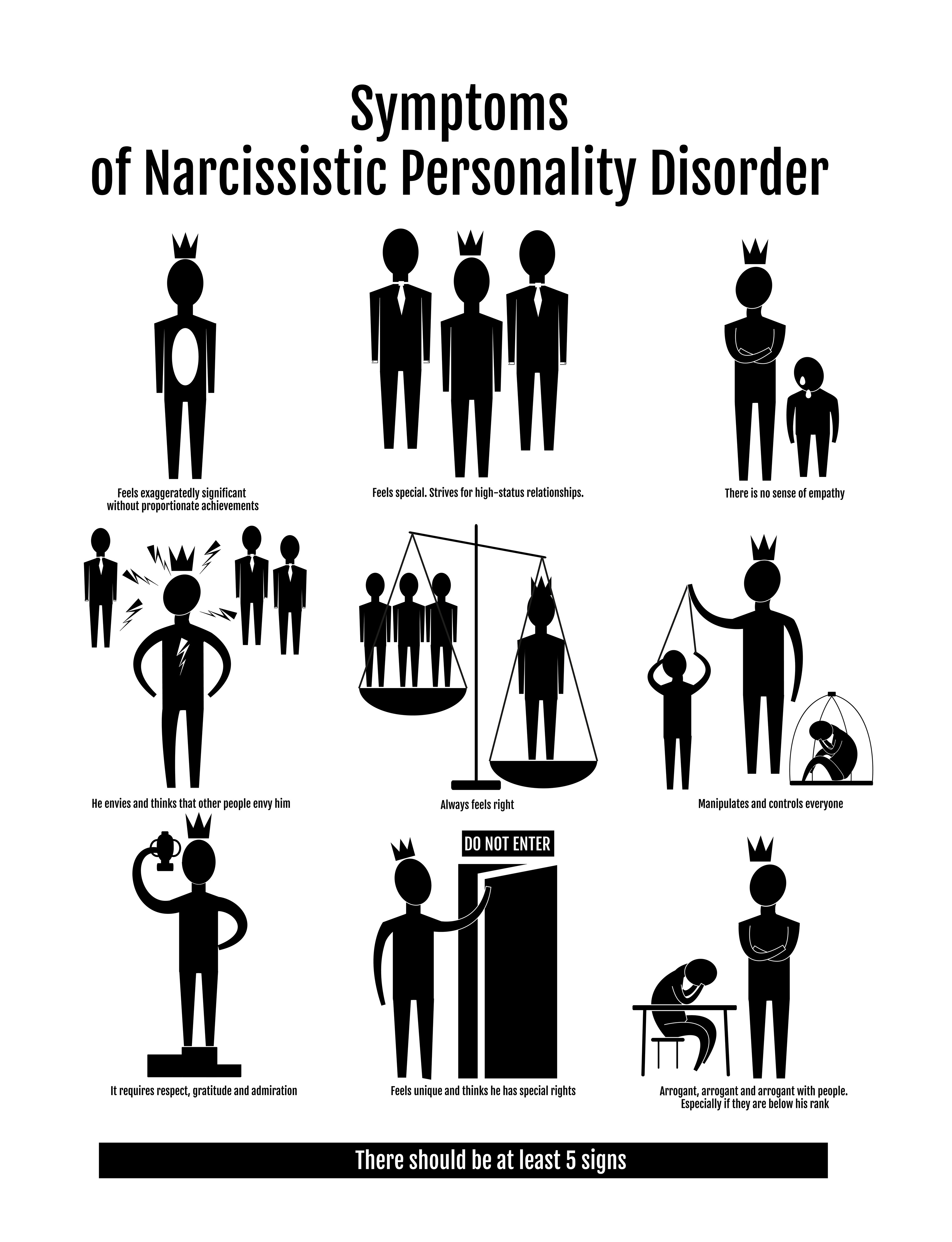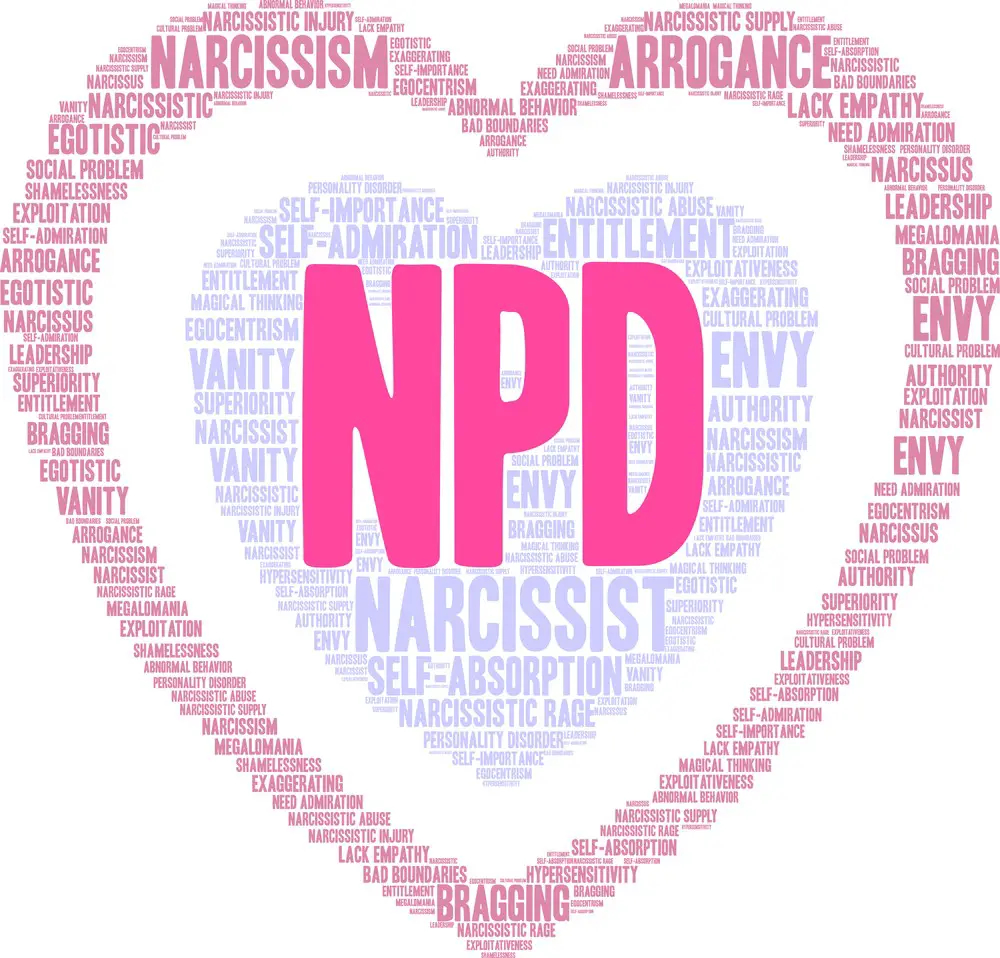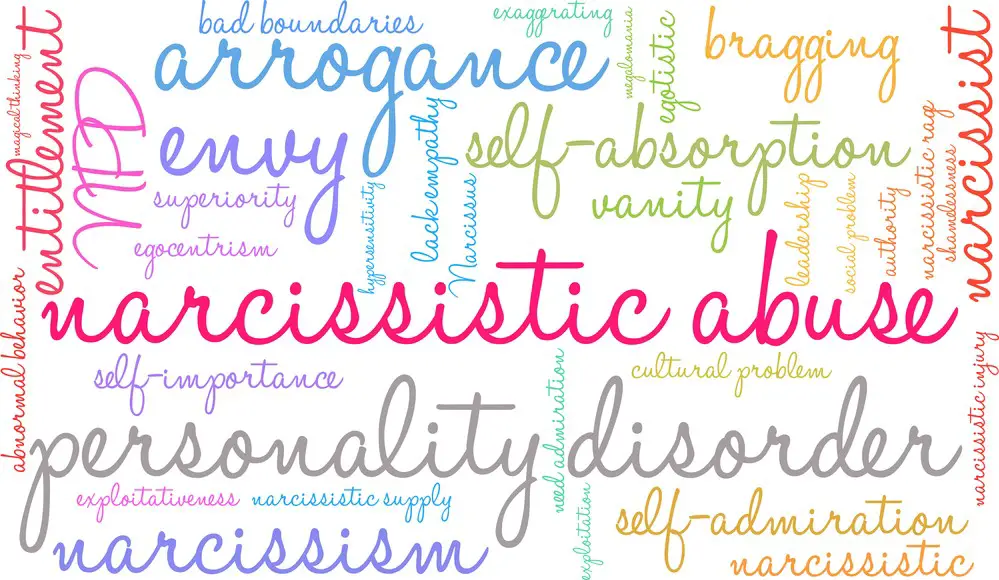As a BetterHelp affiliate, we receive compensation from BetterHelp if you purchase products or services through the links provided
Narcissism, a personality trait characterized by excessive self-love, a sense of entitlement, and a lack of empathy, can be difficult to navigate in relationships. When a narcissist meets their match—someone equally self-absorbed, manipulative, or controlling—the results can be fascinating and disastrous.
Individuals involved in such relationships may find themselves caught in a constant power struggle, battling for superiority and trying to maintain their self-image. As these relationships escalate, narcissistic abuse may become more prevalent, and the consequences can damage all parties involved. Understanding the dynamics of a relationship when narcissists meet their match can provide valuable insights into the potential pitfalls and strategies for dealing with potential issues.
Key Takeaways
- Relationships between narcissists often involve power struggles and manipulation.
- Narcissistic abuse can emerge in these relationships, causing harm to both parties.
- Understanding the dynamics and potential consequences can provide valuable insights for managing such relationships.

Understanding Narcissism
Narcissism is a personality trait characterized by excessive self-importance, a need for admiration, and a lack of empathy for others. Depending on the individual’s traits and behaviors, it can range from mild to extreme.
Characteristics of a Narcissist
A narcissist typically exhibits the following characteristics:
- A grandiose sense of self-importance, often exaggerating their achievements and talents
- A preoccupation with fantasies of power, beauty, or ideal love
- A belief that they are special and can only be understood by or associated with other high-status people
- A constant need for admiration and attention from others
- A strong sense of entitlement, expecting special treatment or favors
- A tendency to use and exploit others for their gain
- A lack of empathy for the feelings and needs of others
- Envy of others or the belief that others are envious of them
- Arrogance and haughty behavior

Narcissistic Personality Disorder
Narcissistic Personality Disorder (NPD) is a more severe form of narcissism that qualifies as a mental health diagnosis. According to the American Psychiatric Association’s Diagnostic and Statistical Manual of Mental Disorders (DSM-5), individuals with NPD must exhibit at least five of the following nine criteria:
- A grandiose sense of self-importance
- Preoccupation with fantasies of unlimited success, power, brilliance, beauty, or ideal love
- The belief that they are special and unique and can only be understood by or associated with high-status people
- An excessive need for admiration
- A sense of entitlement, expecting special treatment or compliance with their expectations
- Exploitative behavior, taking advantage of others for personal gain
- A lack of empathy, unwilling or unable to recognize or identify the feelings and needs of others
- Envy of others or believing others are envious of them
- Arrogance, haughty behaviors or attitudes
Differences between Male and Female Narcissists
Narcissism is a personality disorder that affects both men and women. While there are some similarities, there are also distinct variations between male and female narcissists. Examining these differences is crucial to understanding their relationships’ dynamics and possible conflicts.
Male narcissists tend to be more aggressive and dominant in their behavior. They often seek power, control, and status to bolster their self-image. These individuals may feel entitled, expecting others to admire and serve them unquestioningly. Male narcissists may also be more prone to cheating in relationships, viewing their partners as objects to possess and control.
Some key characteristics of male narcissists are:
- Strong need for admiration
- Excessive self-centeredness
- Exploitative behavior
- Lack of empathy
On the other hand, female narcissists can often appear more subtle and manipulative. They may seek to control people and situations through emotional means, such as guilt, shame, or playing the victim. Female narcissists might value their appearance to boost their self-image and manipulate others. They may also be keenly aware of societal expectations and norms, aiming to project an idealized image of themselves.
Notable traits of female narcissists include:
- Highly sensitive to criticism
- Envy of others
- An exaggerated sense of entitlement
- Superficial relationships
It is important to note that these descriptions depict general tendencies and do not apply to everyone with narcissistic traits. Narcissism operates on a spectrum, and the severity of the disorder may vary from person to person. The differences between male and female narcissists highlight the range of behaviors and motivations that can stem from this complex personality disorder.

When Narcissists Meet Their Match
Challenges in a Power Couple Relationship
When narcissists form a power couple relationship, they often face challenges due to their admiration for their abilities and achievements. These relationships can be highly competitive, as partners strive to outperform each other in various aspects of their lives. This can lead to constant one-upmanship, creating a toxic environment where each partner primarily focuses on asserting their power and dominance.
In a power couple relationship, narcissists may struggle with genuine emotional connections, as their main focus is on maintaining their image and status. Therefore, these relationships can suffer from a lack of emotional intimacy and may become volatile due to each partner’s insecurities.
Balancing Empathy and Boundaries
One key element that can help mitigate the challenges faced by a power couple consisting of narcissistic individuals is finding a balance between empathy and boundaries. Both partners must learn to empathize with each other’s needs, desires, and feelings. However, this can be difficult for narcissists, who usually focus on their needs and desires.
Setting clear boundaries is crucial in any relationship to maintain a healthy dynamic. For narcissistic power couples, respecting each other’s boundaries can be vital in fostering a more harmonious and supportive partnership. Both partners must prioritize understanding and honoring each other’s limits, even when the natural tendency may be to assert dominance or control.
By recognizing and addressing the challenges inherent in a power couple relationship, narcissistic individuals can potentially forge a more stable and mutually beneficial partnership. Balancing empathy and boundaries can pave the way for these couples to develop and grow together while minimizing the potentially harmful effects of narcissism.
Manipulative Tactics and Control
Signs of a Controlling Narcissist
A controlling narcissist often displays manipulative behavior to maintain control and power over their match. They employ constant criticism, undermining their match’s accomplishments and playing mind games to manipulate their match’s emotions.
Their actions may include:
- Belittling: A controlling narcissist will put down their match’s achievements and make them feel undeserving of praise.
- Gaslighting: They may manipulate their match into doubting their reality and memories.
- Psychological Control: The narcissist constantly confuses their match through manipulation and deception.
Strategies to Gain Power
Narcissists use various strategies to gain power and further control their match. Some of these strategies include:
- Isolation: A narcissist may attempt to cut their match’s ties to friends and family, ensuring they are the central figure in their match’s life.
- Projection: They may project their manipulative behavior onto others, particularly their match, to confuse and control them.
- Exploitation: Controlling narcissists may exploit their match’s vulnerabilities and manipulate them into compromising situations.
By staying vigilant against such manipulative tactics and control methods, it is possible to identify and confront controlling narcissists before they can further abuse their matches.
Dealing with Narcissistic Abuse
Effects on Self-Esteem and Mental Health
Narcissistic abuse can profoundly affect an individual’s self-esteem and mental health. Victims often experience decreased self-worth, as narcissists frequently manipulate them by gaslighting and undermining their achievements. These tactics can lead to self-doubt and confusion, making it difficult for victims to trust their judgment.
In addition, narcissistic abuse can contribute to developing mental health issues such as depression, anxiety, and post-traumatic stress disorder (PTSD). This is largely due to the constant emotional and psychological stress that victims may endure throughout the relationship. Consequently, victims need to seek support and prioritize their mental well-being.
Finding Support and Healing
Victims of narcissistic abuse should not hesitate to reach out for help. They can seek support from friends, family, or professional therapists. These sources of support can provide a safe space to talk about their experiences and offer guidance on overcoming the challenges associated with the abuse. It may also be helpful for victims to educate themselves on narcissistic personality disorder, as this can provide a better understanding of the reasons behind the narcissist’s behavior.
To heal from narcissistic abuse, victims should focus on self-care and surround themselves with positive influences. This can include engaging in activities they enjoy, practicing mindfulness, and setting healthy relationship boundaries. Ensuring a supportive network can significantly contribute to the recovery process as well. Moreover, it is crucial to remember that healing takes time, and each individual’s journey is unique.

Narcissist’s Obsession with Image
Grandiose Behavior and Charisma
Narcissists are typically obsessed with their image due to their feelings of superiority and entitlement. They often exhibit grandiose behavior and charisma, drawing people to them with their magnetic personalities. This behavior stems from their desire to maintain an image of power, influence, and control in every situation. Thus, their inflated self-image and need for validation are at the core of their obsession with appearance.
Narcissists tend to:
- Brag about their accomplishments and successes
- Exaggerate their abilities and talents
- Disregard or belittle others’ achievements and opinions
Using Money and Appearance
In addition to their grandiose behavior, narcissists use money and appearance to assert their superiority. They often invest in expensive and luxurious items, showcasing their wealth and status to others. By doing so, they promote their self-image as successful and affluent individuals. Moreover, they may emphasize physical attractiveness, dedicating time and resources to maintaining a flawless appearance.
Key aspects of using money and appearance for narcissists include:
- Designer clothing, accessories, and luxury items
- Showing off expensive cars, homes, and extravagant vacations
- Prioritizing physical fitness and beauty treatments
In summary, narcissists’ obsession with image encompasses grandiose behavior, charisma, and the strategic use of money and appearance. Their drive for superiority, entitlement, and validation shapes these behaviors, reinforcing their image of power and influence.
Conflict and Consequences
Reactions to Confrontation and Boundaries
When a narcissist meets his match, confrontation becomes inevitable. Both individuals can express their thoughts and emotions in a healthy relationship. However, a narcissist might react with denial and negative emotions to confrontations and boundaries. This reaction can lead to manipulative behaviors as the narcissist tries to regain control and validation.
The narcissist’s match, often an emotionally healthier person, may set boundaries to maintain a sense of self and to avoid the shallow emotional or superficial connections the narcissist normally seeks. This action can further aggravate the narcissist’s reactions, leading to a cycle of escalating conflicts and consequences.
Impacts on Children and Others
In situations where children are involved or are spectators to the conflicts between the narcissist and his match, they may also be affected by the consequences. Some of the key impacts on children may include:
- Confusion: Children may struggle to understand the contradictory behavior of the narcissist.
- Emotional distress: The volatile environment from constant conflicts can lead to anxiety and distress among children.
- Adopting unhealthy relationship patterns: Children could mistakenly perceive the conflicts as normal aspects of relationships and may be at risk of repeating them in future interactions.
Besides children, the narcissist’s conflicts with his match can affect other relationships and social circles. The narcissist might undermine the match’s credibility among friends and family. This behavior could isolate the match or create friction within the social circle.
Ultimately, the narcissist’s inability to engage in a healthy relationship where confrontation and boundaries are respected can have lasting effects on everyone involved. The key is recognizing the signs and disengaging from the destructive cycle through self-reflection, emotional support, and professional help when needed.
Escalation and Violence
Warning Signs of Escalating Behavior
Certain warning signs may appear when a narcissist meets his match as their behavior escalates. They may resort to tactics such as blackmailing and emotional manipulation, like crying or feigning distress, to gain sympathy. An individual might also notice the narcissist’s lack of empathy toward their feelings or concerns.
Aggressive behavior can manifest in forms like verbal attacks or even physical violence. The narcissist might become increasingly possessive and controlling, attempting to reclaim power relentlessly by pursuing their target. Recognizing these red flags is vital to take appropriate action and protect oneself.
Coping Strategies
To manage escalating narcissistic behavior, employ the following coping strategies:
- Maintain firm boundaries: Establish and reinforce limits to prevent emotional manipulation or control.
- Seek support from friends and family: Surround yourself with a strong support network to counteract isolation and provide a reality check.
- Disengage from arguments: Refrain from participating in confrontations to avoid escalation.
- Practice self-care: Engage in activities that promote mental and emotional well-being.
Protecting Oneself
Taking steps to ensure one’s safety is paramount when dealing with a narcissist who exhibits escalating or violent behavior. The following measures can be helpful:
- Document incidents: Keep records of threats, attacks, or abusive behavior.
- Inform trusted individuals: Share concerns and experiences with reliable friends, family members, or professionals.
- Create an exit plan: Be prepared to leave the situation or relationship, and identify accessible resources like shelters or safe havens.
- Consider legal action: Obtain restraining orders or file reports with law enforcement when appropriate.
Recognizing the signs of escalation and adopting coping strategies can help individuals navigate difficult situations with narcissists, ultimately prioritizing their safety and well-being.
Frequently Asked Questions
What happens when narcissists clash?
When narcissists clash, they become entwined in a power struggle to assert dominance and protect their egos. This can lead to intense arguments, manipulative tactics, and attempts to discredit each other. These interactions often escalate, causing emotional or even physical harm, with neither party willing to compromise or back down.
How to outsmart a narcissist?
To outsmart a narcissist, one must remain calm, collected, and emotionally detached from the situation. By setting boundaries, limiting personal information shared, and keeping expectations realistic, individuals can gain an advantage over the narcissist. Another effective strategy is employing the “gray rock” method, where someone becomes uninteresting and non-responsive, thus depriving the narcissist of their desired emotional reaction.
What do narcissists desire?
Narcissists primarily seek admiration, attention, and validation from others. They crave praise and acknowledgment of their accomplishments and status. Additionally, narcissists desire power, control, and superiority over others, often using manipulation and exploitation to achieve their goals.
Signs of a narcissist using you
Some common signs that a narcissist is using you include excessive flattery, manipulation or guilt-tripping, constant criticisms or belittling, gaslighting (making one doubt their reality), and a lack of empathy. These tactics serve to maintain control and keep the targeted individual emotionally dependent on the narcissist.
Narcissists and their relationships
Narcissists typically struggle to maintain healthy, long-term relationships. Their lack of empathy, compulsive need for control, and manipulation often lead to dysfunctional dynamics, causing emotional and psychological harm to their partners. Relationships with narcissists are typically characterized by a cycle of idealization, devaluation, and discarding.
Outcomes for narcissists in the end
In the long run, narcissists often face negative consequences due to their inability to sustain meaningful connections with others. As relationships deteriorate, narcissists may find themselves isolated, lonely, and struggling to maintain the facade of success and happiness. Their inability to confront their inner vulnerabilities may eventually result in emotional turmoil, psychological issues, or a decline in their overall well-being.
- How Having Cybersecurity Protection Helps You Relax - April 25, 2025
- 8 Reasons Why Spending Time Outside Calms You Down - April 25, 2025
- 5 Helpful Ideas for Managing Stress During a Plumbing Emergency - April 24, 2025
This site contains affiliate links to products. We will receive a commission for purchases made through these links.



